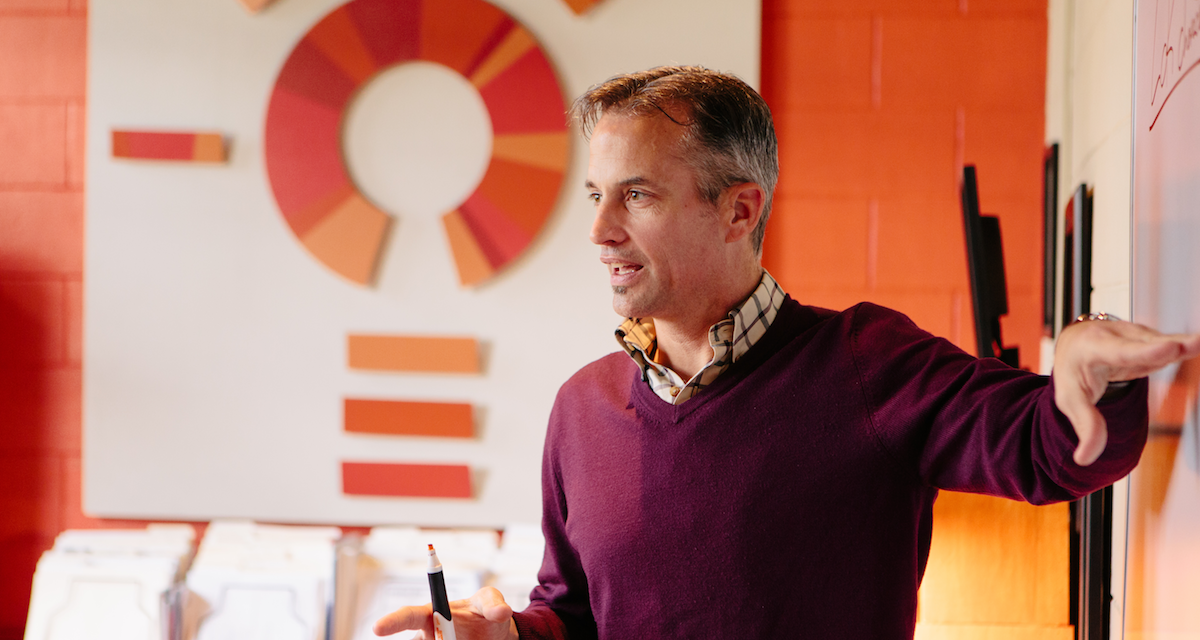Staff Spotlight: Carter Crockett
Dr. Carter Crockett keeps on his computer an image of a Major League Baseball player diving full force after a foul ball—“in a territory,” he says, “where he could just let it drop.” Why? It reminds him that sometimes the best pursuits are not found in conventional places.
“That’s what it felt like we were doing when we dove into Africa,” he says. “It took everything we had to pull it off, and many people were asking why we were trying so hard in a place so far from the ‘normal’ field of play.”
It was 2009, and Carter and two of his best friends decided to leave corporate America and launch the first consulting firm in the country of Rwanda, with the mission to alleviate poverty one business at a time. “We all sold our houses and our cars, put our stuff in storage, and bought 13 one-way plane tickets to do something everyone told us was probably going to fail.”
Karisimbi Business Partners not only succeeded in its launch, but continues to grow. Today, Karisimbi Partners operates four companies in Rwanda, employs more than 50 people, and has advised managers in virtually every sector of the economy.
Four years after moving to Rwanda, the founding partners returned to the U.S. and Carter was invited to head the new Center for Entrepreneurial Leadership at Gordon.
“The Center was going to be the first one of any of Christian liberal arts schools ever to be attempted,” he says. “It sounded ambitious, impossible—and I like those kinds of challenges.” As with many things, Carter dove in head first, undeterred by the unknown. And once again, risk begat reward.
Since its launch in 2013, CEL has rolled out a host of new programs—including opportunities to learn from seasoned entrepreneurs through Open Coffee, mentoring and a speaker series; opportunities to study entrepreneurship through a minor in innovation and social enterprise and an intensive seminar in Carter’s old stomping grounds, Rwanda; and opportunities to practice entrepreneurship leading up to the Social Venture Challenge, which has awarded $40,000 to student start-ups.
In Carter’s view, entrepreneurship isn’t limited to business students. More than 1,000 students from a variety of majors have interacted with CEL, and it’s this sort of cross-pollination between divisions and departments that gives it a spark. That’s why, Carter says, “we invite every single student on campus to get a feel for what it is to chase a vision, to launch your own thing. It’s certainly not for everybody, but everybody can benefit from enhancing their creative capacities.”
“This part of the world slants toward social causes, social justice,” he says. “Our student body certainly does. What we’ve tried to do is equip students to do what they are interested in.”
This sentiment holds true beyond the walls of CEL. Over the past several years, Gordon has increased the number of socially and globally minded programs—evidence of a remarkable energy surrounding careers for the common good. In addition to the innovation and social enterprise minor and the Rwanda Seminar, Gordon has added minors in sustainable development, international development, and peace and conflict studies as well as the Balkans Semester for the Study of War and Peace.
“Christians should be leading in this space,” Carter says. “If you’re going to take social impact seriously, there might actually be no better place on the planet than a Christian liberal arts school, where faithful founders are asked to think deeply about how to address the needs of a broken world.”
 The Bell
The Bell